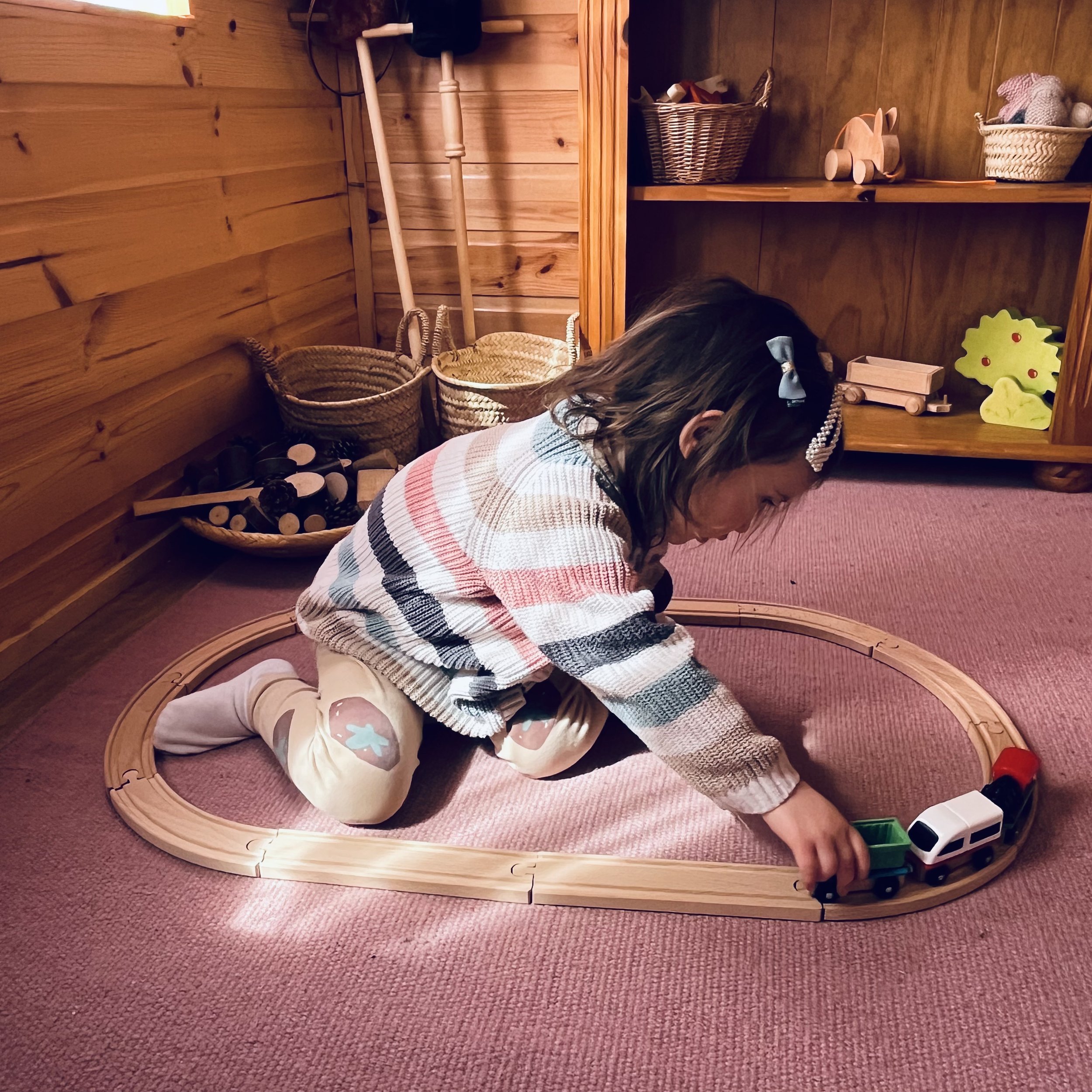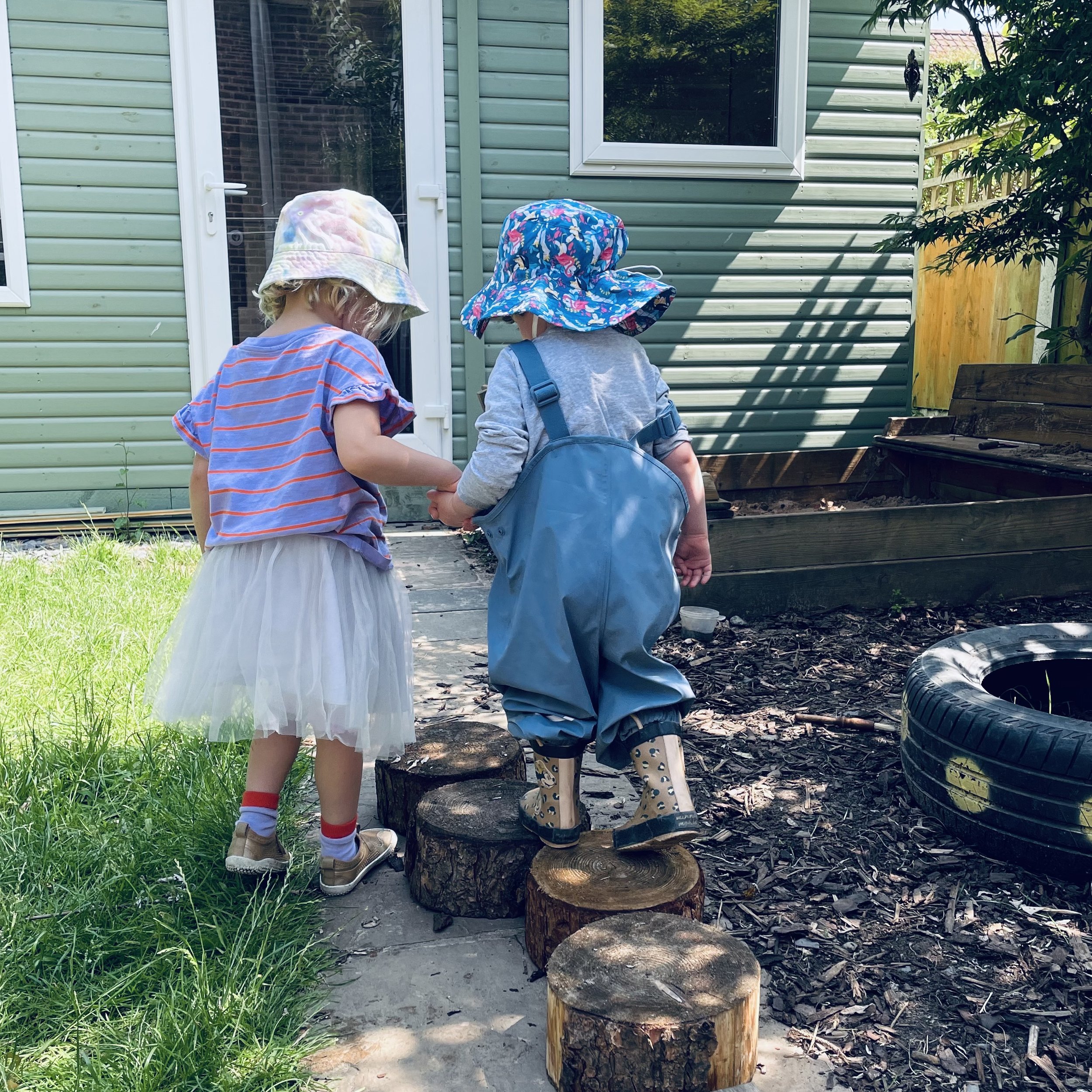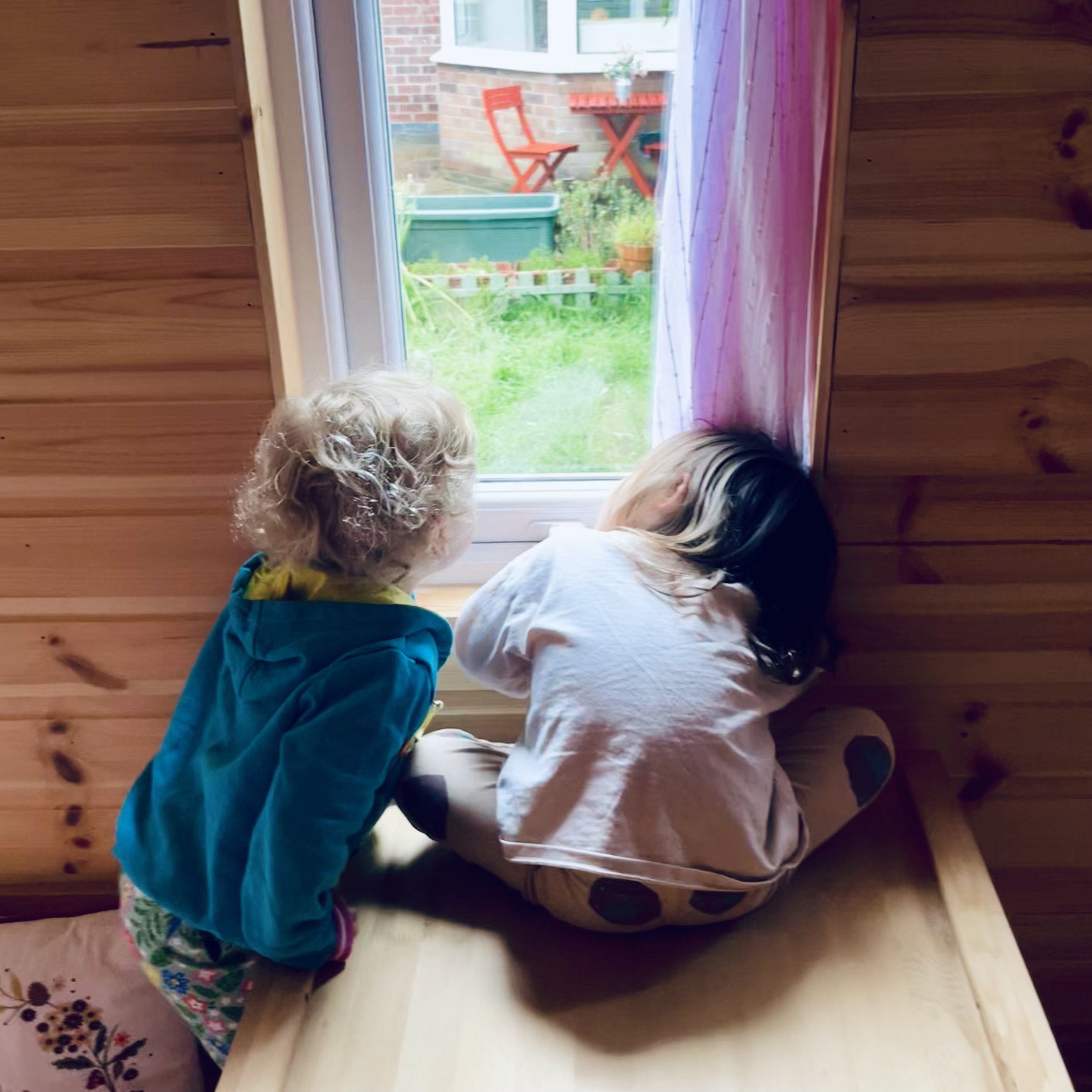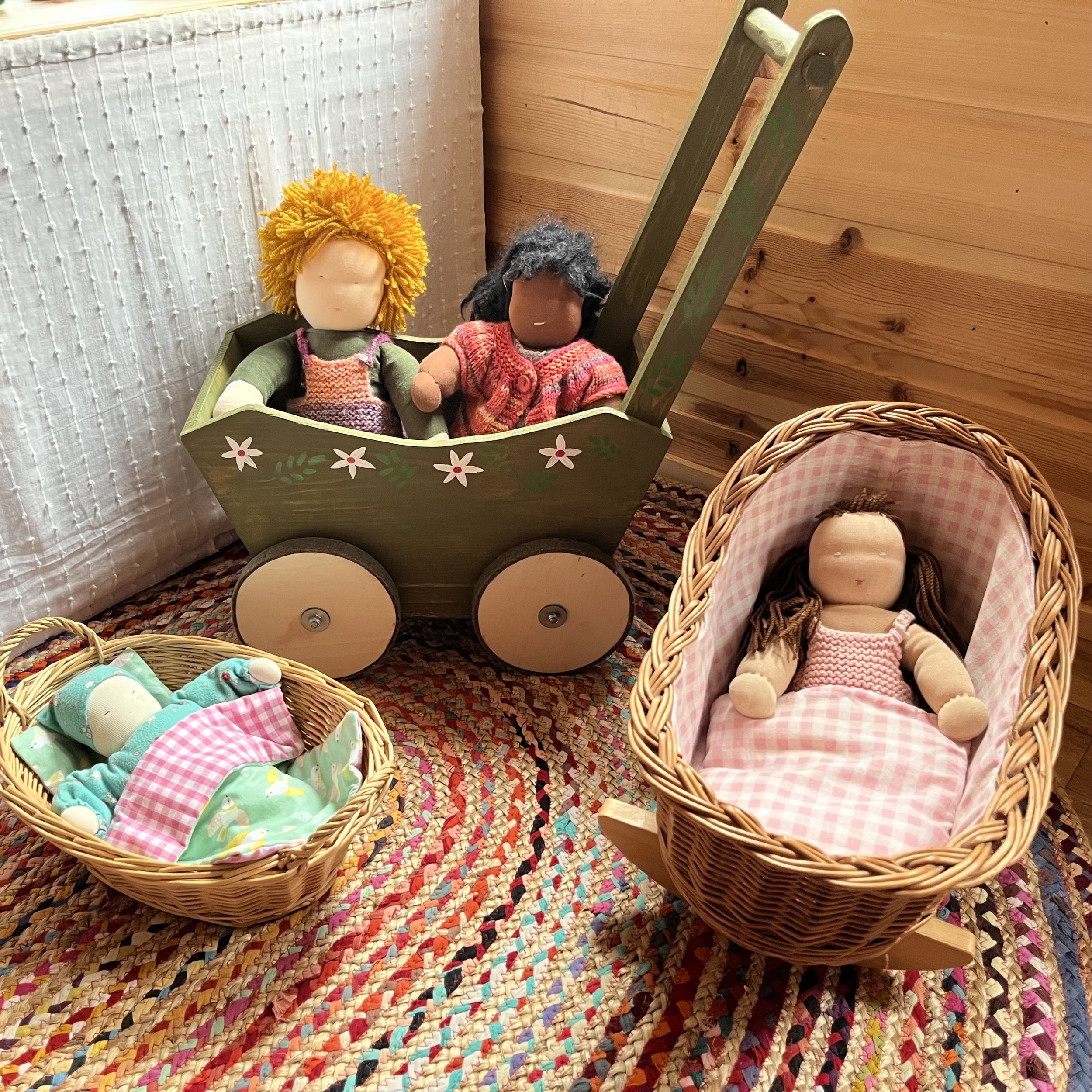The Approach
My work is based on Rudolf Steiner's (1861-1925) understanding of life and human development and the principles presented by Emmi Pikler (1902-1984).
Rudolf Steiner was an innovative academic born in Austria whose ideas formed the basis of Anthroposophy. Steiner applied his concepts to various fields, including education, known as Waldorf education. The first Waldorf school was inaugurated in 1919 in Stuttgart, when Emil Molt, the managing director at the Waldorf-Astoria cigarette factory, invited Rudolf Steiner to found and lead a school for his workers’ children.
Waldorf education, also known as Steiner education, aims to instil a love for lifelong learning in all children and fully develop their unique capacities. The thinking, feeling, and willing forces, that gradually emerge during the different phases of human development, are the dimensions that underpin the foundation of this education. In turn, these three human activities relate to the body: thinking to the head, feeling to the rhythmic organs in the torso (heart and lungs), and willing, or doing, to the limbs.
During the first seven years of life, children experience the most significant physical growth and development. Within the first three years, they acquire three fundamental abilities: walking, speaking, and thinking. Gradually, children conquer their bodies and learn to master and adapt them to their own individuality. Children learn about the people and world around them.
In these first seven years, children’s primary mode of learning is through doing and experiencing. They learn through movement, repetition, and by imitating everything around them. It is through this experimental, self-motivated physical activity repeated over and over again, that children immerse themselves in the world and come to understand it. Therefore, during this stage, children primarily interact with the world through their will (using their limbs – hands and legs by doing), followed by feeling and finally thinking. Firstly, the young children do something, which then generates a feeling and only then have thoughts about it.
This hands-on experience and learning are an essential foundation for later abstract thinking and conceptual understanding. Children are also like an open-sensorial organ, absorbing everything around them. Therefore, it is important to protect and nurture their senses during this stage of development.
With this understanding, children are surrounded by a peaceful, simple, yet beautiful and creative environment where they can feel secure and nurtured. The day follows a structured rhythm, balancing adult and child-led activities. During child-initiated play, children learn imaginatively and through exploration, while alongside, the adults engage in meaningful and practical tasks like cooking, cleaning, gardening and crafts, aiming to inspire children to become independently active in their play. Children are welcome to participate in these adult tasks but are not required to help and adults offer themselves as an example rather than an instructor. For this reason, one of the most important tasks that Rudolf Steiner places on the adults is that they become very conscious of themselves so they can be worthy of children’s unquestioning imitation.
The simplicity of everyday home life forms the curriculum where children’s social habits and independence are instilled in moments like sharing meals or working together. Practical and natural maths learning comes through cooking or laying the table. Their knowledge and understanding of the world grow through their experiences, both indoors and out, and children’s communication, language and pre-literacy skills are developed through daily singing and storytelling.
Rhythm, repetition and reverence are three educational principles. While rhythm and repetition give structure and form to each child’s daily life, enabling them to feel safe, and secure and to know where they are in the world, reverence enables the children to connect with something greater and experience a sense of awe and wonder in the world around them.
While there is no documented evidence of Rudolf Steiner and Emmi Pikler being acquainted with each other’s work, Pikler seems to have intuitively grasped many of the principles outlined by Steiner regarding the development and needs of young children.
Emmi Pikler was a Hungarian and innovative paediatrician. While studying medicine and influenced by Professor Clemens von Pirquet and paediatric surgeon Hans Salzer, she intuited that a child’s motor development can unfold naturally without direct adult interference if a child is given the time, freedom and support of a dependable adult to engage in self-initiated movement. However, Pikler observed that this natural process was often disrupted, with children from all social classes being assisted, sat, propped and encouraged to walk prematurely.
When Pikler became a mother herself, she and her husband decided not to interfere in their daughter’s motor development. This gave them the possibility of observing what happens naturally when a child is allowed to fully self-initiate movement and play.
After World War II, she established an orphanage for abandoned or orphaned children aged 0-3 years old, known as Lockzy. After opening it, Pikler was able to implement her approach to early childhood care, observing and documenting for decades how children’s motor development unfolds naturally without an adult’s direct interference when a secure-trusting relationship is built between the carer and the infant.
The Pikler Approach recognises, therefore, the importance of a kind and respectful relationship between the adult and young child for their overall well-being and physical and emotional development. It places great importance in the care tender moments, particularly during times of bodily care like feeding, changing, and bathing. During these moments, the young child is invited to be an active partner who can contribute to the event and influence the relationship. This means that all the aspects of the care routine are carried out ‘with’ and not done ‘to’ the infant/young child.
Through these focused and gentle moments of care, a secure attachment is established and the baby gains the confidence she needs to start self-directed play and explore her bodily movements freely without interruption from the adult. In turn, the child’s motor development unfolds naturally without needing an adult’s direct interference.
Steiner and Pikler both recognised, therefore, that young children have a natural ability and inner wisdom to get to the upright position if there is a strong, loving and respectful relationship between the young child and adult and if the child is involved in the right environment. They emphasized that adults need to be highly attentive, aware, respectful and loving to children, placing great importance on the moments of bodily care and on how to create a safe and peaceful space for children to self-initiate body movement and play in earshot or sight of an adult but without the adult’s need to be the initiator of play or entertainer.
I believe that together with you, and inspired by these two approaches, we can offer the protection and respect for the dignity of childhood and lay the foundations for your child’s later learning and healthy development, including life-long physical, social, emotional, intellectual, and spiritual growth.
The Nest
At Hummingbirds' Nest, the days are filled with the simplicity of everyday home life. Everything is created to enhance your child’s innate sense of learning through imitation. The days follow a predictable rhythm with a balance of structure and free play. The care moments hold a special place in our daily rhythm as these are precious for building a secure-trusting relationship with your child.






